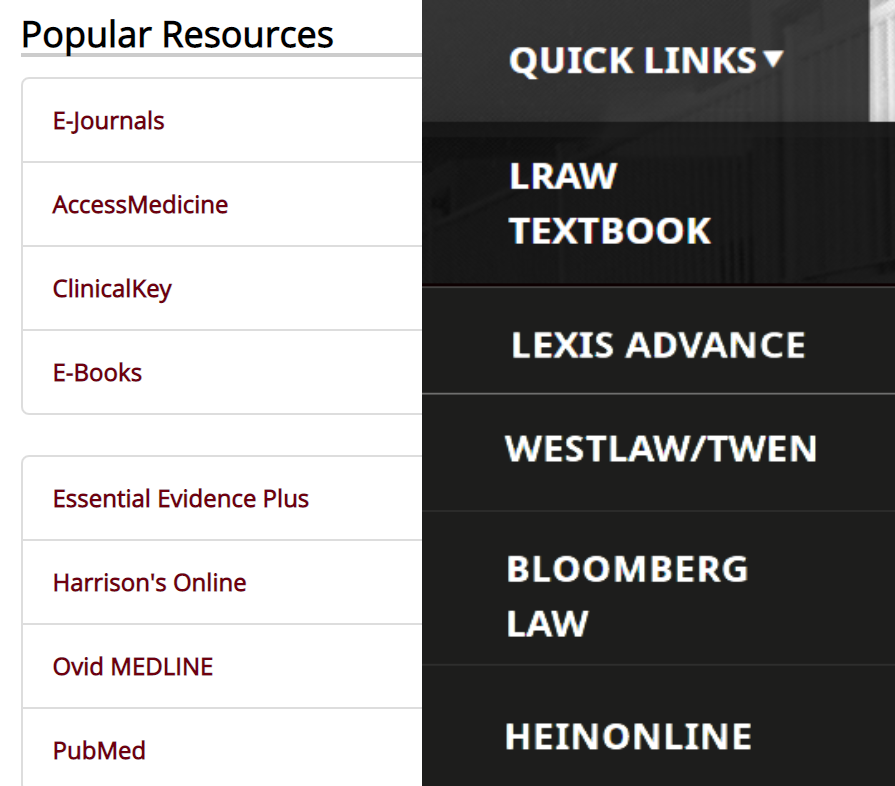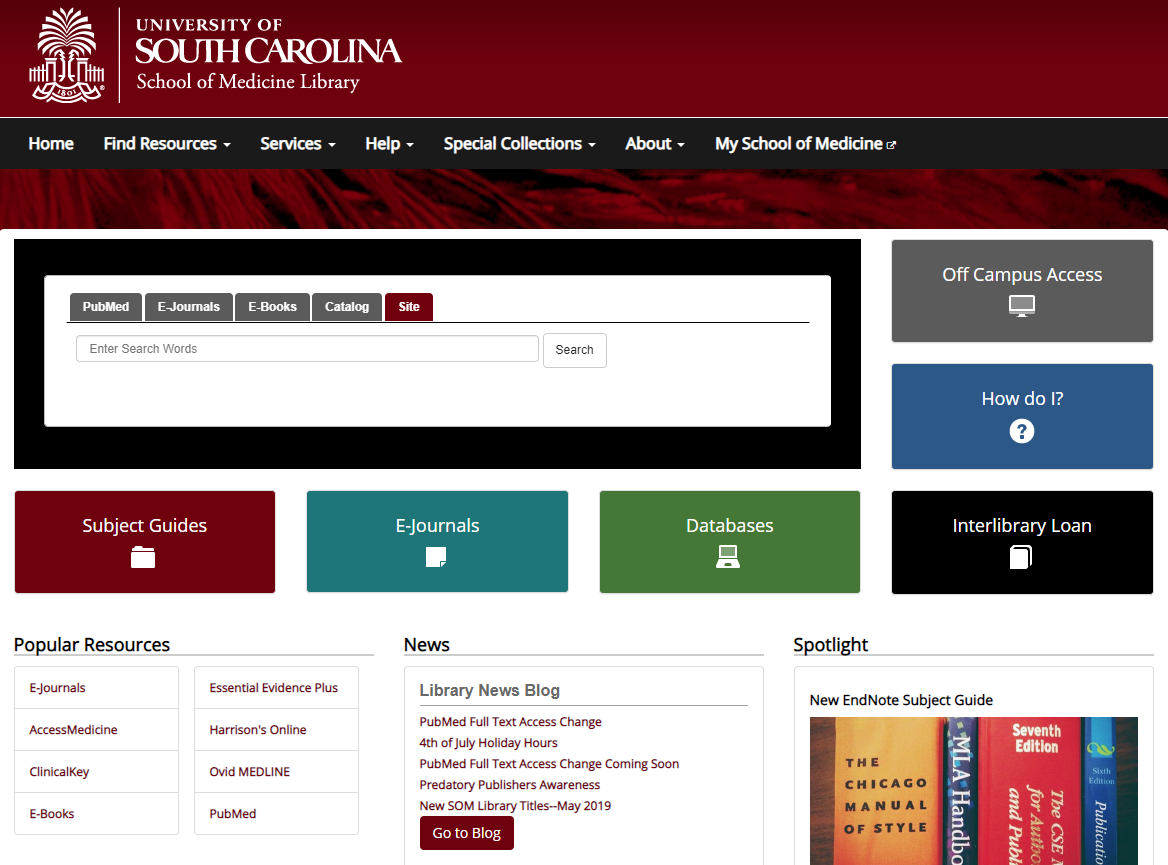Specialized Databases for Law and Medicine
Law students know that Google is usually not the most robust method of finding legal answers.
When thorough, accurate research is crucial, law students rely on the specialized online databases provided through the law library.
Likewise, medical students aren’t relying on Google or WebMD. They use their own specialized databases through the medical library.

You Can Use Medical Databases
Did you know that many of the medical library’s high-quality online databases are accessible even if you’re not affiliated with the School of Medicine?
Anyone can use these medical databases from any hardwired computer on the University of South Carolina campus, including the computers in the law library.
If you are using your own computer or mobile device, you will need a UofSC Network ID and password.
When Legal Researchers Might Use Medical Databases
Here are a few example scenarios in which legal researchers might benefit from medical library resources.
Health Law and Policy

When doing legal research that analyzes healthcare-related laws or regulations from a policy perspective, medical resources may provide relevant statistics, as well as important insights from healthcare practitioners.
The medical library has gathered resources on:
- Opioids
- South Carolina Health Disparities
- many other aspects of healthcare—see the full list of medical library subject guides
Providing Resources for the Whole Client
 Sometimes lawyers are trying to help clients in specific situations connect with resources, where the legal aspect is only one component of the situation.
Sometimes lawyers are trying to help clients in specific situations connect with resources, where the legal aspect is only one component of the situation.
The medical library has gathered resources that may help people who experience:
- Disabilities
- Elder Care
- Post Traumatic Stress Disorder (PTSD)
- many other situations—see the full list of medical library subject guides
Standard of Care
 In medical malpractice cases where the standard of care is at issue, the medical library’s resources may provide context and grounding for expert testimony.
In medical malpractice cases where the standard of care is at issue, the medical library’s resources may provide context and grounding for expert testimony.
A medical treatise alone is not enough to establish what the standard of care is in specific circumstances; expert testimony is needed. Botehlo v. Bycura, 282 S.C. 578, 584, 320 S.E.2d 59, 63 (Ct. App. 1984).
However, an expert must do more than testify that the doctor deviated from the expert’s “personal standard of care;” the expert must testify that the doctor fell short of “the generally accepted standard of care.” Guinan v. Tenet Healthsystems of Hilton Head, Inc., 383 S.C. 48, 57, 677 S.E.2d 32, 38 (Ct. App. 2009).
Medical library resources on practice guidelines may be helpful.
Understanding a Personal Injury
 The facts of some legal cases hinge on a physical injury.
The facts of some legal cases hinge on a physical injury.
Facts such as where on the body the injury occurred, how that body part is supposed to function, and how an injured person could be affected, may be crucial facts for a lawyer to understand in order to form a case strategy. They may also be critical facts for the judge and/or jury to understand in order to reach a certain result.
Medical library resources on anatomy may be helpful. After learning the correct medical terminology to refer to a body part or type of injury, it may be helpful to keyword-search medical databases such as AccessMedicine or ClinicalKey.
There Is No Substitute
To be clear, medical library resources are not a substitute for medical advice or medical care.
However, medical library resources are a significant step up from unvetted information found online.

The author of this blog post, Eve Ross, thanks Laura Kane of the medical library for her assistance in navigating medical library resources.
